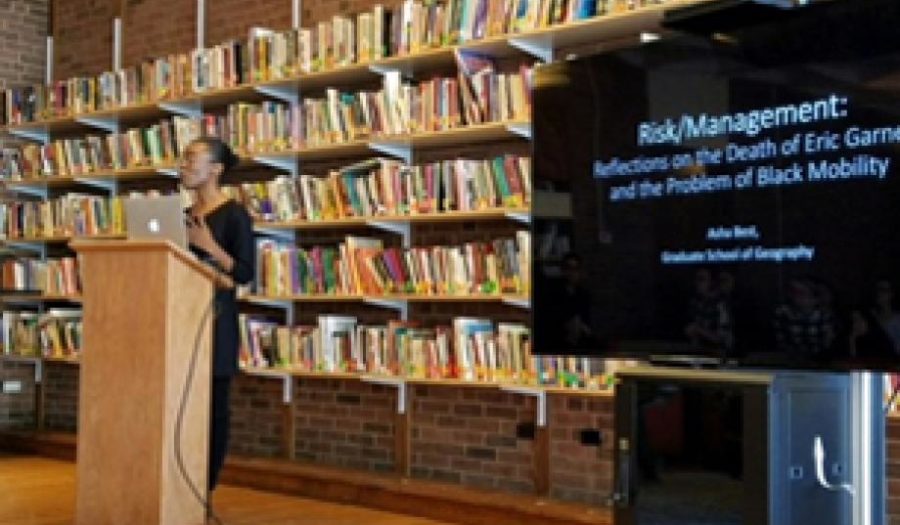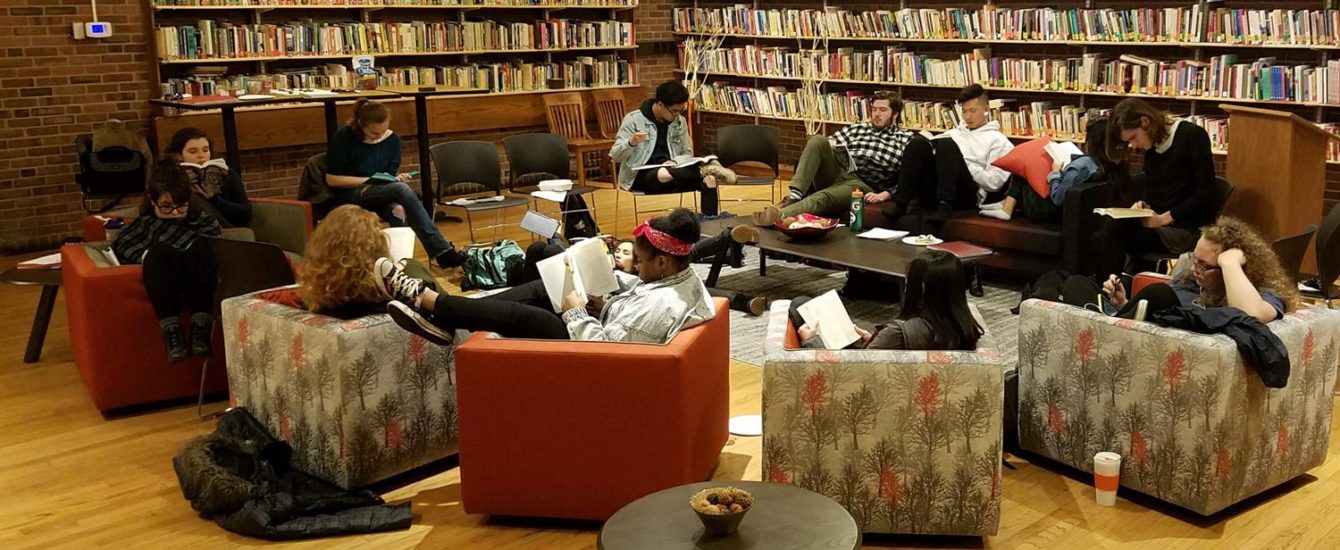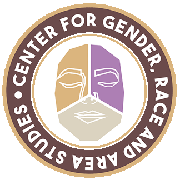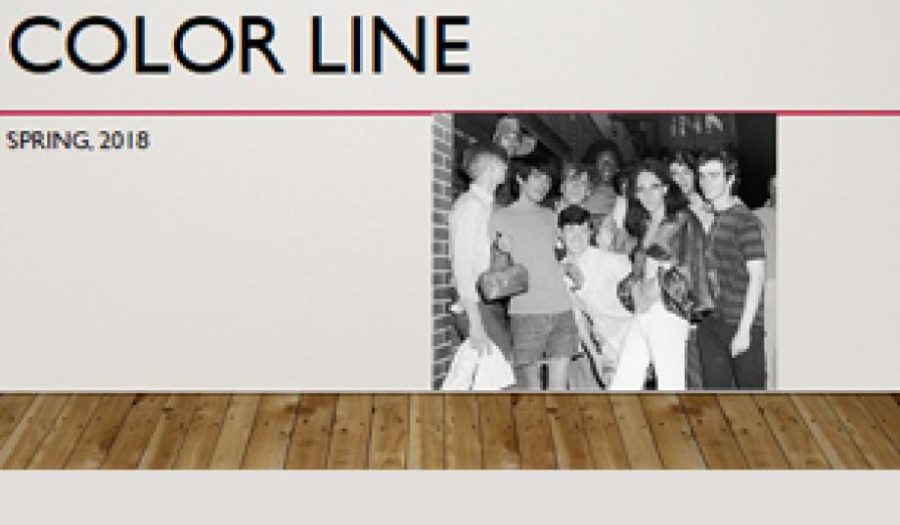
New-faculty brown-bag luncheon series
The series will connect the CGRAS and campus communities with new faculty who have expressed interest in CGRAS’s mission and/or whose job descriptions include formal commitments to CGRAS programs.

 The Center for Gender, Race, and Area Studies (CGRAS) is an academic hub at Clark University consisting of the interdisciplinary programs of Women’s and Gender Studies, Genocide and Humans Rights Studies, Asian Studies, Latin American and Latinx Studies, Africana Studies, Comparative Race and Ethnic Studies, and Peace Studies. Our core mission is the study of diverse, disadvantaged or marginalized societies and populations with an emphasis on how to promote social justice. CGRAS facilitates intellectual synergies around diversity within and across gender, race, and ethnicity in scholarship and teaching. We develop programming that reaches across a broad range of disciplines beyond our constituent programs to support the academic diversification of Clark University.
The Center for Gender, Race, and Area Studies (CGRAS) is an academic hub at Clark University consisting of the interdisciplinary programs of Women’s and Gender Studies, Genocide and Humans Rights Studies, Asian Studies, Latin American and Latinx Studies, Africana Studies, Comparative Race and Ethnic Studies, and Peace Studies. Our core mission is the study of diverse, disadvantaged or marginalized societies and populations with an emphasis on how to promote social justice. CGRAS facilitates intellectual synergies around diversity within and across gender, race, and ethnicity in scholarship and teaching. We develop programming that reaches across a broad range of disciplines beyond our constituent programs to support the academic diversification of Clark University.
In the Africana Studies concentration, students explore the lives of people of African ancestry both in Africa and around the world, but especially Sub-Saharan Africa, the United States and the Caribbean. In the process students will develop a cultural, historical, political, social and geographical awareness of the ways people of African descent have lived, worked and fought for self-definition. An examination of topics such as literary traditions, artistic production, cultural practices, education, religion, human rights, environmental degradation and renewal, democracy, revolution, and health in this interdisciplinary context are central to understanding the modern world.
The interdisciplinary Asian Studies major reflects the growing importance of the eastern, southeastern and southern regions of Asia, and the undeniably central role that countries like China, Japan and India play in the world economy and in world affairs today. By combining perspectives from faculty in the social sciences, humanities, arts and business, students gain knowledge of the region as a whole, as well as the diverse histories, politics, economies and cultures of countries it encompasses.
Students in the Comparative Race and Ethnic Studies concentration explore the ways race and ethnicity have been, and continue to be, powerful social and political forces in the United States and across the globe. Students examine how race and ethnicity intersect with other structures of identity formation, such as class, gender, sexuality, nationality and legal status. The concentration also allows students to compare U.S. experiences with those of other racially and ethnically diverse countries around the world, both past and present.
Through the Genocide and Humans Rights Studiesconcentration, incidences of mass violence are studied to enhance understanding of the society from which we came, the society in which we live and the society to which we are giving shape. In the process, students learn about collusion and resistance; about the hot violence of mass murder and the cold violence of the modern, bureaucratic machinery of death; and about suffering and adaptation to suffering. Students learn how societies disintegrate, step by step, and how ordinary men, women and children both participate in and are affected by this disintegration. Students learn, in short, a tremendous amount about making the world a better place.
Latin American and Latinx Studies is a multidisciplinary concentration designed to expose students to the substantial cultural, economic and geopolitical impact of Latin America and Latinx people in the U.S. It offers courses which mark the diversity of historical, cultural and political experiences of Latin America, the interrelationships between Latin America and the U.S., and the growing influence of Latinx people in the U.S. Students have the opportunity to take concentration-related courses in art history, communications, economics, history, international development, political science, and Spanish.
Peace is not simply the absence of war. It is also the presence of justice and equality that ensures basic necessities of life are met. It involves the elimination of violence, oppression, greed and environmental destruction by the constructive mediation of conflicts. Students in the Peace Studies concentration will examine the contexts in which conflict occurs: between individuals, in communities and organizations, and within societies and between states, and how conflict can lead to constructive change rather than violence. Students will also have a chance to explore and participate in actions that provide hope for positive social change.
Clark’s Women’s and Gender Studies degree program dates from a political moment in the 1970s when student activists urged their feminist mentors to begin offering courses in women’s studies. As a WGS major or minor, students explore women’s issues, the social construction of femininities and masculinities, and the gendered dimensions of any field of study at Clark. This interdisciplinary program brings together more than 50 faculty members from the humanities, social sciences, cultural studies, management, and visual and performing arts. Program courses stress the importance of social identities and relationships, such as those shaped by gender, sexuality, ethnicity, race, and class, in order to understand individual and collective experiences.

The series will connect the CGRAS and campus communities with new faculty who have expressed interest in CGRAS’s mission and/or whose job descriptions include formal commitments to CGRAS programs.

The series will connect the CGRAS and campus communities with new faculty who have expressed interest in CGRAS’s mission and/or whose job descriptions include formal commitments to CGRAS programs.

CGRAS faculty from different disciplines and ranks present “guided tours” of their most effective syllabi. Talks will cover the entire process of syllabus building and teaching, from initial conceptualization and text selection to assignment creation and lecture/discussion plans. The colloquium enables participating faculty to dive deeply into each other’s courses, exchange teaching materials and pedagogical methods, and explore a variety of course models.

CGRAS faculty from different disciplines and ranks present “guided tours” of their most effective syllabi. Talks will cover the entire process of syllabus building and teaching, from initial conceptualization and text selection to assignment creation and lecture/discussion plans. The colloquium enables participating faculty to dive deeply into each other’s courses, exchange teaching materials and pedagogical methods, and explore a variety of course models.

Pre-tenure and visiting faculty, and postdoctoral fellows will have opportunities to exchange written work with peer and senior faculty.

Pre-tenure and visiting faculty, and postdoctoral fellows will have opportunities to exchange written work with peer and senior faculty.

This faculty-organized group will meet monthly to discuss foundational and emergent works in intersectionality studies. Participating faculty will collaborate on developing a reading list and a repository of relevant resources to be maintained with CGRAS support.

This faculty-organized group will meet monthly to discuss foundational and emergent works in intersectionality studies. Participating faculty will collaborate on developing a reading list and a repository of relevant resources to be maintained with CGRAS support.
There are currently no upcoming events scheduled, please check back at a later date.
Dana Commons, Suite 1
950 Main Street
Worcester, MA 01610-1477